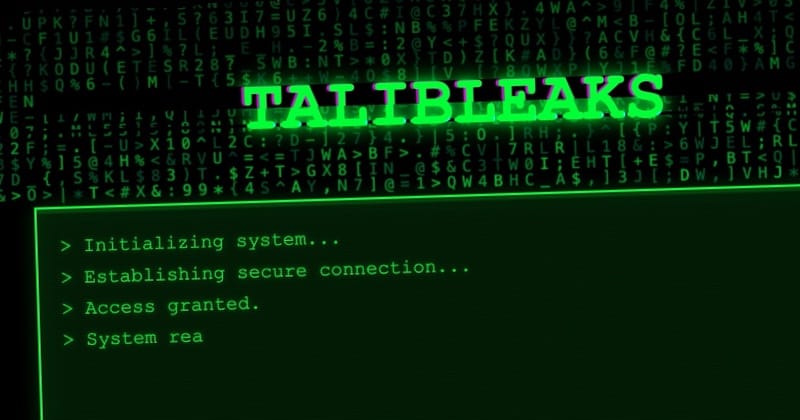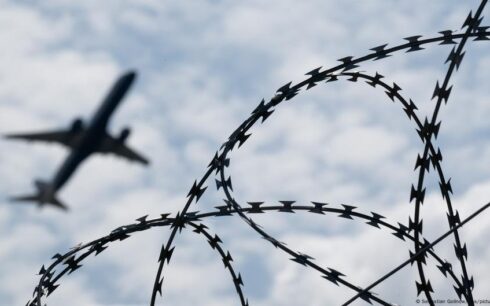The cyber attack on the servers and computers of Taliban’s official institutions, which is considered an unprecedented event in the history of Afghanistan’s cyber space, has wide-reaching implications. During this attack, carried out by a group of anonymous hackers, many official documents from Taliban institutions were released.
The documents on the “Talibleaks” website indicate that the attack was not only aimed at damaging the technical infrastructure of Taliban institutions but also intended to expose information that could help analyze and evaluate the performance of the group and the Taliban government.
From a technical perspective, this attack exemplifies the complexities and dangers of the cyber space, having breached the security systems of the Taliban’s governmental institutions and accessed sensitive information. Continued such attacks could pose serious threats to the Taliban’s security and economy.
However, from another angle, the attack has provided a great deal of information about the Taliban’s internal workings, decision-making processes, and strategies, which has been made available to media outlets and international organizations. The released documents might include new details regarding Taliban’s internal interactions, key policies, military strategies, and relationships with other groups and foreign countries. These revelations could help analysts and policymakers gain a better understanding of the Taliban’s internal situation and potential future behaviour.
Taliban’s governance style
The leaked documents clearly show that the Taliban regime lacks administrative hierarchy and structure. Instead, each individual holds administrative and financial authority depending on their influence within the group and proximity to Hibatullah Akhundzada, the Taliban leader in Kandahar. Hibatullah selectively supports some departments and strips others of their authority.
For example, the leaked documents reveal that the Taliban leader is particularly keen on empowering and expanding the authority of the Ministry for the Promotion of Virtue and Prevention of Vice (PVPV). Various orders have been issued that offer special privileges such as overtime pay, land allocations, and permission to carry weapons for employees of this ministry.
For instance, inspectors from the Ministry for the Promotion of Virtue and Prevention of Vice, in one case, received at least one million Afghanis in overtime pay on top of their monthly salaries. They are allowed to receive treatment at both civilian and military hospitals, possess weapons and armoured vehicles, and in addition to the departments of the Ministry of Women’s Affairs assigned to them, Hibatullah Akhundzada has allocated 1,000 square meters of land to this ministry in each province.
Moreover, the documents show that the administrative correspondence style under the Taliban regime is highly unprofessional and disregards administrative hierarchy. Any individual with greater influence, even if they are at the lowest administrative level, can bypass administrative procedures and issue directives or take actions based on Hibatullah’s instructions.
Nature of Taliban’s governance
A large portion of the leaked documents reflects the Taliban’s intellectual attitude toward the people of Afghanistan. While Taliban’s ideologies are evident in the writings of official figures such as Abdul Hakim Haqqani, the head of the Taliban’s Supreme Court, official correspondence reveals that the Taliban gives minimal attention to the public welfare. Their actions focus mainly on restricting citizens’ freedoms, imposing travel bans, and collecting money under the guise of official and religious taxes.
Despite collecting various official and unofficial taxes from the people of Afghanistan, the Taliban provides minimal services to citizens. All health, food, and basic needs, as well as the salaries of government employees, depend on foreign aid, and with the suspension of such aid by the United States, all these sectors are collapsing. The Taliban is unable to regularly pay the salaries of its employees, while credible information indicates that senior members of the group have gradually amassed vast fortunes and receive substantial salaries.
Revenge as a Taliban strategy
The leaked documents clearly show that the Taliban holds deep animosity towards former government employees, including those who collaborate with the group and form a significant portion of the Taliban regime’s skilled workforce. Thousands of these individuals have been banned from leaving the country and are awaiting trial. At the same time, a significant number of former security and defence forces members have been continuously detained, disappeared, or killed.
Other documents suggest that the Taliban has not limited its revenge actions to former officials within Afghanistan, but has also attempted to extradite some of them from Iran by exploiting the extradition agreement between Afghanistan and Iran.
Expanding Chinese influence
One of the leaked documents reveals that Chinese companies, in an official letter to a Taliban minister, requested access to natural resources through the Ministry of Mines. This document exemplifies China’s growing influence in the Taliban regime’s structures. Given China’s approach toward penetrating governmental institutions, it is highly likely that illegal financial transactions, administrative corruption, and bribery are involved in this process.
Additionally, some documents indicate that the cooperation between the Taliban and Chinese companies extends beyond the mining sector. Some internal Taliban correspondences mention discussions in which Chinese companies have expressed interest in providing cyber security services and equipping surveillance systems. This suggests that China, in addition to its economic exploitation, seeks to strengthen its position within the Taliban’s security structures. If this trend continues, it could lead to greater dependence of the Taliban on China’s technology and investments, ultimately paving the way for broader Chinese influence in Afghanistan.
Conclusion
The leaked documents from the Taliban regime present a clear picture of their style of governance, intellectual nature, financial policies, corruption, administrative chaos, and revenge-driven actions. These documents show that the Taliban lacks a defined administrative system and hierarchy, with decision-making based on personal influence and proximity to the group’s leader.
Moreover, the Taliban focuses on restricting citizens’ freedoms and implementing strict social control, while public services and employee salaries are dependent on foreign aid. Furthermore, the disclosed information highlights China’s increasing influence in Afghanistan’s economic affairs and its access to the country’s natural resources.
Alongside these issues, the released documents reveal that the Taliban follows a revenge-driven strategy, particularly targeting former government employees, especially former security and defence forces. The group has not only targeted its opponents within Afghanistan but has also sought to extradite some of the persecuted individuals from neighbouring countries, including Iran. In summary, these documents depict a non-transparent, unstable, and repressive government that prioritizes power and domination over improving the country’s conditions.
Besmillah Taban, a PhD student in Security Studies at JU, served in various positions within the Afghanistan National Police (2002-2021), including as the Head of the Crime Investigation Department (CID). He can be reached on the social media platform X at @BesmillahTaban.
Opinions expressed in this article are those of the author and do not necessarily reflect the views of this publication.





